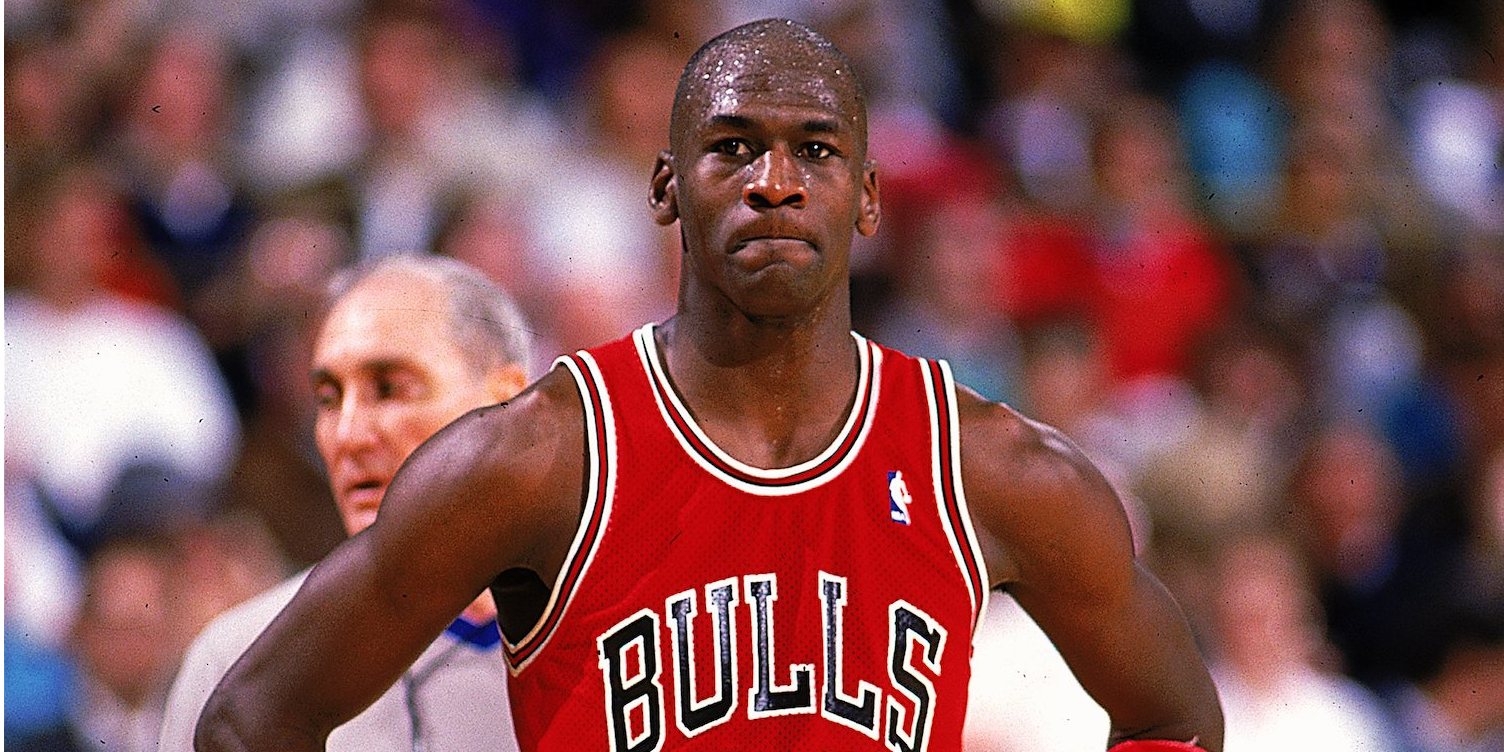- Michael Jordan added 15 pounds of muscle in one summer to better withstand the physical play of the Detroit Pistons in the playoffs.
- Jordan hadn’t lifted weights consistently for fear of messing up his shot, but worked with his trainer, Tim Grover, to bring his weight from 200 to 215 with upper-body work.
- Jordan and Grover’s relationship was influential in the NBA community, as was their focus on injury prevention, core strength, and weight-lifting.
- Visit Insider’s homepage for more stories.
After a third straight loss to the Detroit Pistons in the playoffs, Michael Jordan decided he needed to bulk up to handle the physical abuse he was taking.
As documented in ESPN’s “The Last Dance,” Jordan and his personal trainer, Tim Grover, hit the weight room that summer.
“I was getting brutally beaten up,” Jordan said in episode four of the series. “And I wanted to administer pain. I wanted to start fighting back.”
Grover said in the episode that Jordan began at 200 lb and added five pounds in increments, building up to 215.
Grover told Stack.com that Jordan hadn't consistently lifted weights before because he was scared of altering his jump shot. Jordan told the Chicago Tribune the same thing in 1992, saying, "'I never really lifted weights before because I was always afraid it would mess up my shot or slow me down."
However, Grover said in "The Last Dance" that Jordan hit the weights hard in the summer of 1990.
"I would give him a certain amount of reps to do, but he would never stop at that number," Grover said. "If I asked for six, I knew he was gonna do 12."
Between 1989, when Jordan and Grover first started working together, and 1991, when Jordan and the Bulls won their first championship, finally getting past the Pistons, Jordan added a noticeable amount of muscle.


"I was always physically drained and tired after we played [the Pistons]," Jordan told The Tribune. "I feel a lot stronger now.''
Influential work
Jordan and Grover initially started working together in 1989. Grover told GQ that he wanted to work independently instead of with a team. He got a call from the Bulls in 1989 saying they had an "interested client." Grover drove to the meeting and it was Jordan. Jordan told him he wanted to "start fresh" in his routine, and Grover agreed to a 30-day trial to see if Jordan liked Grover's methods.
"30 days turned into 15 years," Grover told GQ.
Grover and Jordan's work influenced the NBA and broader sports world. First, NBA players almost never worked with trainers outside of their team staff. Jordan, however, wanted a trainer who could work on his schedule and do work more personally scripted to his needs. Today, it's not uncommon for NBA players to work with outside trainers or doctors.
Second, the first thing Grover worked on with Jordan was injury prevention. Grover told GQ that Jordan was "susceptible" to injuries early in his career and that Jordan's athleticism and skills wouldn't matter if he couldn't stay on the floor.
Grover also stressed working on core strength, encouraging Jordan to do more than just sit-ups.
"If your core is strong, all of your muscles can produce more force and perform at a higher level ... Many athletes do hundreds of crunches and neglect their oblique and erector muscles," Grover told Stack.com. "Injury can occur if any part of the core is weak."
Both philosophies are commonplace in sports now. LeBron James, for instance, focuses on strengthening his core and resting and recovering in between games.
http://instagr.am/p/B_Yq-7RA_4a
Jordan and Grover continued working together throughout the Bulls' championship run in the '90s. Jordan soon recommended Grover to teammates and other NBA players, with Jordan and Grover hosting morning workouts that Bulls teammates attended.
"The greatness came from the work he put in, his dedication to be his best, not wanting to lose at anything and studying the film and movements of his opponents," Grover told Stack.com, adding: "His mental make-up was completely different. It's extremely rare."
- Read more:
- Michael Jordan said he would only appear in 'The Last Dance' docuseries if he always had the final word
- Former Bulls center says they used to wonder if Michael Jordan was human until he finally showed emotions after winning his first championship
- Dennis Rodman spent late-night gym sessions rebounding for his friends so he could track the trajectory of different shots
- Dennis Rodman once made Michael Jordan and the Bulls go all out in a drill designed to get him back in shape after a personal vacation
